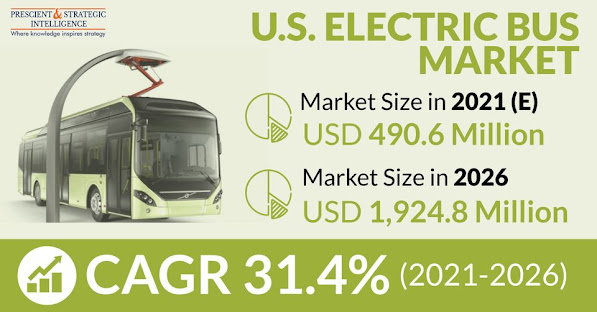U.S. Electric Bus Market Projected to Garner Significant Revenue

The increasing concerns being raised by several environmental agencies and local governments over the rapid deterioration of air quality are driving the demand for electric buses in the U.S. As vehicular emissions contribute heavily toward the escalating air pollution levels, the degradation of the environment is propelling the deployment of electric buses in the country. Presently, conventional diesel-powered buses are a major part of the public transportation system, but they contribute massively toward the soaring greenhouse gas emissions. Moreover, the enactment of strict environmental regulations is also positively impacting the deployment of these buses in the country. Besides these factors, the falling prices of lithium-ion batteries are also supporting the expansion of the U.S. electric bus market, which will witness a surge in its revenue from $490.6 million in 2021 to $1,924.8 million by 2026. According to the estimates of the market research company, P&S Inte...


